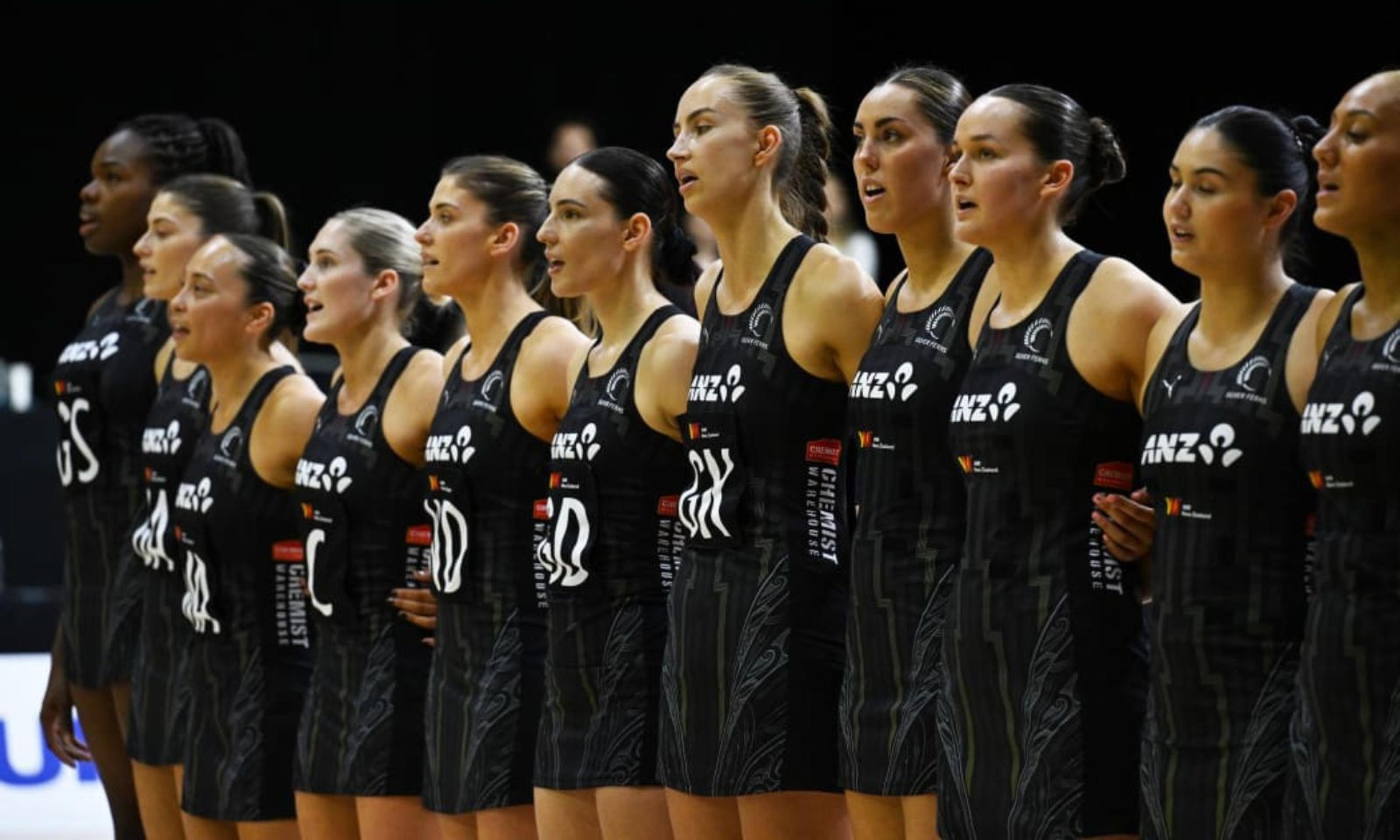

Nuclear bombs were detonated in the northern Pacific in the 1940s and ‘50s after World War II.
Photo/US Navy
Nuclear-free Pacific: Green MP warns region under threat
Teanau Tuiono says New Zealand must heed the calls for climate action and demand nuclear justice for its Pacific whānau.



Fiji’s former Prime Minister and police chief charged with inciting mutiny

Immigration reassesses toddler's declined visa request as Children's Commissioner steps in

US funding cuts threaten to 'dry up' future of Pacific scientists - expert


Fiji’s former Prime Minister and police chief charged with inciting mutiny

Immigration reassesses toddler's declined visa request as Children's Commissioner steps in
A nuclear-free Pacific is vital for stability in the region, Green MP Teanau Tuiono says, and reaffirming Aotearoa New Zealand's status in the current geopolitical climate is not just a matter of legal obligation.
It is a vital step toward ensuring the long-term peace, security, and independence of the Pacific, he adds.

The Green Party's Teanau Tuiono says New Zealand must reaffirm its nuclear-free status. Photo/RNZ
Tuiono says it's a good time to revitalise the Treaty of Rarotonga, signed in 1985.
It was a "landmark achievement" in establishing the South Pacific Nuclear Free Zone.
The Treaty was signed by Aotearoa, Australia, the Cook Islands, Fiji, Kiribati, Nauru, Niue, Papua New Guinea, Sāmoa, Solomon Islands, Tonga, Tuvalu, and Vanuatu.
Watch Cook Islands' senior government official, Tepaeru Herrmann, talk about the first Rarotonga Treaty States Parties Meeting in December 2020.
The member for Palmerston North says during a recent visit to the Pacific, he pondered on the calls for climate and demands for nuclear justice by the islanders.
In an op-ed published in the NZ Herald this week, Tuiono says the Marshall Islands are seeking support to address nuclear legacies.
"After World War II, the United States, the United Kingdom, and France conducted over 315 atmospheric and underground nuclear tests at 10 sites across the region, including in Kiribati, French-occupied Polynesia, Australia, and the Marshall Islands.
"The United States alone carried out 67 nuclear tests on the atolls of Bikini and Enewetak in the Marshall Islands in the 1940s and ‘50s.
"Today, the Marshall Islands is seeking regional and international support to address nuclear legacies, something they advocated for at the recent Pacific Islands Forum (PIF)."
Tuiono says Aotearoa is not a country in complete isolation because "we belong to a community of countries in the Pacific and I believe it is upon us to look out for one another.
"This is something I pondered during a recent visit to the Marshall Islands. During my time there, I reflected upon their calls for climate action and demands for nuclear justice, contemplating what this means for us, their southernmost neighbours, in our shared Pacific home."
The PIF leaders, including United Nations Secretary-General Antonio Guterres, pushed for more climate action, among other issues, in their Tonga summit. One talking point was the nuclear-free zones in the region.

Marshall Islands President Dr Hilda Heine remembers the victims of nuclear testing in her country. Photo/supplied
Keeping the Pacific nuclear-free was echoed by leaders from Tonga, Cook Islands, and Sāmoa to New Zealand during Deputy Prime Minister and Minister for Foreign Affairs, Vaovasamanaia Winston Peters during his tour of the nations earlier this year.
As geopolitical tensions intensify across the Pacific intensify, Tuiono believes it's more "crucial than ever" to reaffirm New Zealand's nuclear-free status - not just as a legal commitment but as a moral and strategic stance.
"The competition for influence in the Pacific has escalated, with major powers increasingly viewing the region through a strategic and militaristic lens.
"I believe this shift poses a direct threat to the independence and unity of PIF and challenges the nuclear-free status that has been a cornerstone of Pacific identity for decades.
"The Treaty of Rarotonga, signed in 1985, was, in my opinion, a landmark achievement in establishing the South Pacific Nuclear Free Zone."
However, the treaty, while groundbreaking, was not without compromises, he says.
"These compromises have become even more significant in the context of Aukus, the trilateral security pact between Australia, the United States, and the United Kingdom, which includes the controversial acquisition of nuclear-powered submarines by Australia.
Watch Professor David Robie's interview about his time on the anti-nuclear vessel Rainbow Warrior that was sabotaged and sunk just before midnight on 10 July 1985 by two explosive devices attached to the hull by operatives of the French intelligence service (DGSE).
"Although these submarines may not technically violate the Treaty of Rarotonga due to carefully crafted loopholes, the spirit of the treaty is undoubtedly undermined, in my opinion.
"This has led to growing frustration across the Pacific, with the region’s people seeing these actions as a betrayal of the region’s nuclear-free commitments.
"In light of these challenges, I consider the call to revitalise the Treaty of Rarotonga as not just timely but essential."
Tuiono says a stronger, more comprehensive treaty would not only reaffirm the region’s commitment to being nuclear-free but also provide a crucial buffer against the increasing militarisation of the Pacific.
He says the increasing military presence in the region, under the guise of aid and security, highlights the need for a renewed focus on genuine regional cooperation.
"This means addressing the root causes of instability in the Pacific, such as climate change, resource scarcity, and the lingering impacts of colonialism.
"Reaffirming our nuclear-free status in the current geopolitical climate is not just a matter of legal obligation, but in my opinion is a vital step toward ensuring the long-term peace, security, and independence of the Pacific.
"By acknowledging the legacy of nuclear testing, rejecting the militarisation of our region, and strengthening our commitments to a nuclear-free Pacific, we can honour the past while protecting the future."
Watch international relations expert Robert Patman discuss growing tensions in the Indo-Pacific region and why the AUKUS security pact is so controversial for Pacific Island nations.